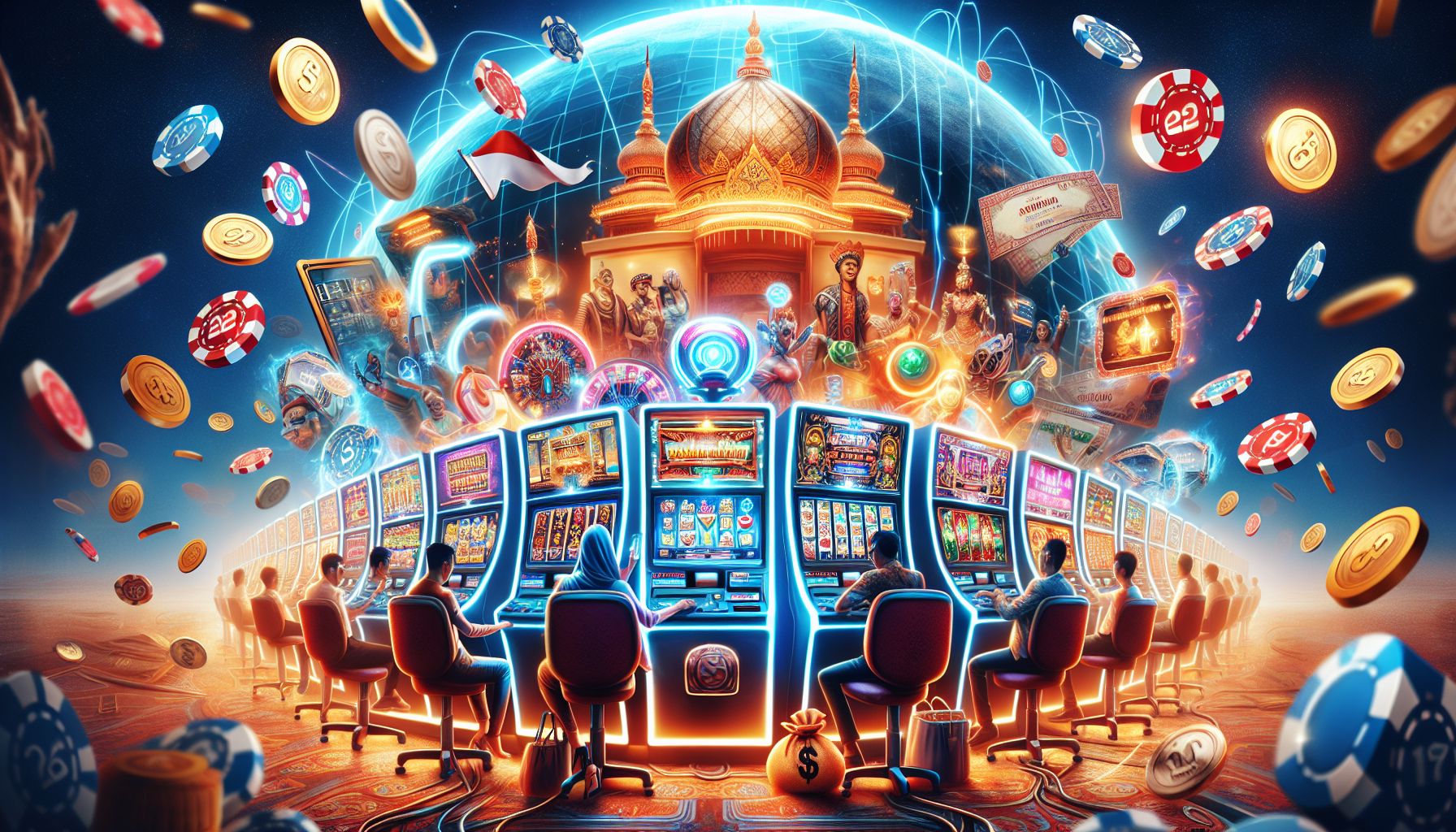In the grand arena of gambling, where cards shuffle and dice roll, there stands a timeless titan, reigning supreme amidst the glitz and glamour of the casino floor—the slot machine. With its mesmerizing lights, tantalizing sounds, and promise of instant fortune, the slot game has captivated millions around the globe, transcending generations and cultures. But what lies beneath the surface of this seemingly simple game of chance? Let’s embark on a journey through the history, psychology, and innovation of slot deposit qris games to unravel the enigma behind their enduring popularity.
A Journey Through Time: The Evolution of Slot Games
The genesis of slot games can be traced back to the late 19th century, with the invention of the first mechanical slot machine by Charles Fey in 1895. Fey’s Liberty Bell machine, with its three spinning reels and five symbols—horseshoes, diamonds, spades, hearts, and the Liberty Bell—ushered in a new era of entertainment. Initially found in bars and saloons, these early slot machines offered patrons the chance to win cigars or drinks rather than cash prizes.
As technology advanced, so did the slot game. The introduction of electrically powered machines in the 1960s revolutionized the industry, allowing for more complex gameplay and larger payouts. With the dawn of the internet age, slot games made their transition to the digital realm, giving rise to online casinos and a vast array of virtual slot machines accessible to players worldwide at any time.
The Psychology of the Spin: Why We Keep Coming Back for More
What is it about slot games that keeps players coming back for more, eagerly pulling the lever or pressing the spin button in hopes of hitting the jackpot? The answer lies in the intricate interplay of psychology and game design.
One of the key psychological principles at play is the concept of intermittent reinforcement. Slot games are designed to deliver random rewards at unpredictable intervals, creating a sense of excitement and anticipation with each spin. This intermittent reinforcement keeps players engaged and coming back for more, even in the face of repeated losses.
Moreover, the visual and auditory stimuli employed in slot games are carefully crafted to enhance the player experience. Vibrant graphics, immersive sound effects, and engaging animations combine to create a sensory-rich environment that captures the player’s attention and heightens their emotional response to wins and losses alike.
Innovations in Gameplay: From Classic Reels to Cutting-Edge Features
While the core mechanics of slot games remain rooted in tradition, modern technology has paved the way for a wealth of innovative features and gameplay mechanics. From video slots with elaborate storylines and interactive bonus rounds to progressive jackpots that can reach staggering sums, today’s slot games offer a diverse range of experiences to suit every player’s taste.
One notable trend in recent years is the integration of gamification elements into slot game design. Features such as leveling up, unlocking achievements, and competing against other players add an extra layer of excitement and immersion, transforming the solitary act of spinning reels into a social and competitive experience.
The Future of Slot Games: Where Will the Reels Take Us Next?
As technology continues to evolve at a rapid pace, the future of slot games holds limitless possibilities. Virtual reality (VR) and augmented reality (AR) technologies are poised to revolutionize the way we experience casino gaming, transporting players to immersive virtual environments where they can interact with slot machines and fellow gamblers in ways never before possible.
Furthermore, advancements in artificial intelligence (AI) and machine learning are opening up new avenues for personalized gaming experiences. AI-powered algorithms can analyze player behavior in real-time, tailoring gameplay mechanics and rewards to suit individual preferences and playing styles.
